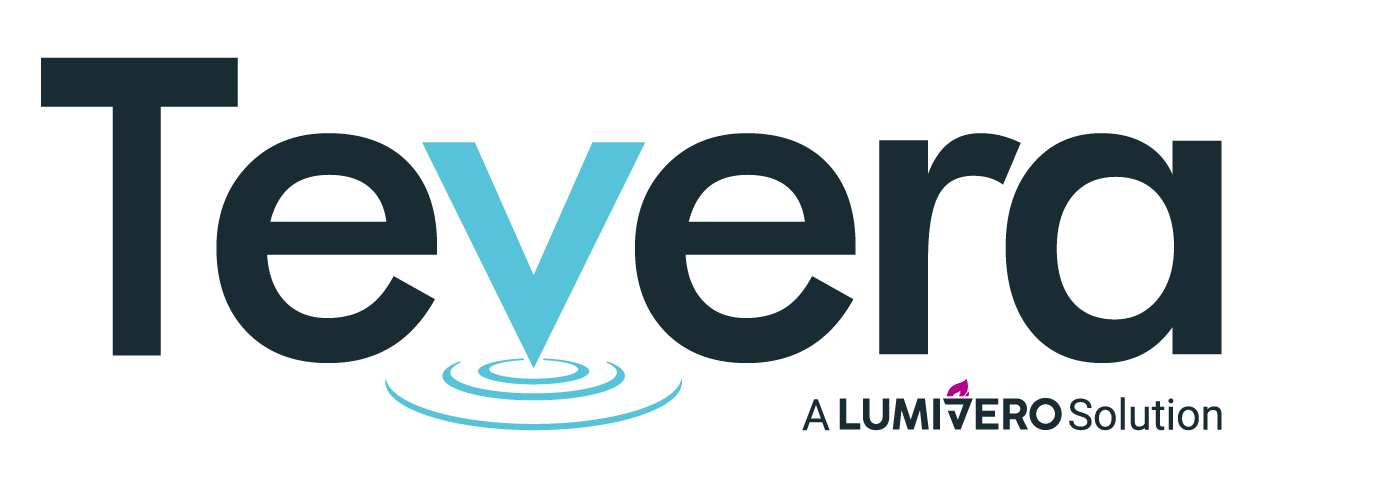How One Practicum Director Nurtures Counselors
Executive Summary
Finding and hiring ideal interns for counselor education can be tough. NUWAY practicum director, Dr. Tiffany Laschkewitsch, sat down with us to talk about how to build a successful field program and how their team:
- identifies quality candidates,
- provides them with individual and group training and supervision, and
- prepares them for a successful career.

Dr. Tiffany Laschkewitsch
Psy,D., LP, LADC
Practicum Director, NUWAY
Q: Let’s start with an introduction.
A: I’m Tiffany Laschkewitsch. I’m the practicum director at NUWAY. I’m a licensed psychologist and a licensed alcohol and drug counselor. I’ve done a variety of jobs in the field, including being the director of a women’s program. I’ve been running this program for roughly three and a half years. Prior to this, I was director of training and director of mental health services at another site. And I’ve been the practicum director at NUWAY for almost four years.
Q: What led you and inspired you to get into the field?
A: I’ve always had a healthy curiosity about why people do what they do. Once I took my first few psychology classes, I just loved it. So I went that route and have loved it ever since. Right now, I’m working with interns and I love it. I don’t foresee not working with interns.
Q: Tell us about your role with the interns. What do you love working with them about? How do you go about setting up a successful process for them?
A: What I love about working with interns is that I get to see them blossom from being scared to make a mistake into excellent clinicians. Being a part of that journey is just amazing.
Even just at NUWAY, we’ve trained over 240 interns in the last four years here and so, as you can imagine, we make these amazing connections. For example, people work at NUWAY now that were interns under me at my previous spot. And it’s really fulfilling.
Q: The interns have to get placed with you. How do you go about making sure it’s a good match, so you get off on the right foot?
A: I think the first thing is you have to know your site really well. You have to know who the clients are, and what the advantages and struggles the interns may face. And you have to be really honest about that. That basically shapes and determines the type of intern that we take at our site.
Because we’re a big company, our interns are exposed to hundreds of different clients during their internship with us. So, an intern cannot be extremely shy to the point where they’re afraid to interact. They have to be more assertive, or at least be able to access that type of personality. They have to have a basic level of skill. But typically, we’re not really hiring for skill because the interns have all been through the same type of training. So unless they’re really behind, they’re all on the same level.
Q: So for these “soft skills,” do you look for them on a resume or during the interview?
A: It’s a little both. The students that work as case managers typically tend to be pretty good fits, because they’re already used to being flexible. They’re used to seeing clients that are a little more severe. So if I see that on a resume, I get pretty excited about what that intern will bring.
When I interview, I don’t have stock questions that I go through. What I tend to do is describe the site and then in between that, I’ll pepper in questions about what’s on their resume and what they’re looking for. And then lead off of that.
Because what I’m actually trying to figure out is —
- How willing are you to learn new ideas?
- How much will I be able to give you feedback in supervision?
- Are you going to be open to who our clients are and what they bring?
Those are the main three things that I look for in an intern. And if I get a sense that I’m not going to be able to give them feedback or they’re super defensive already, then I’m likely to not take that intern.
Q: Please give us an overview of how you make onboarding a smooth and successful process for everybody involved.
A: We’re unique in that we handle interns from the first point of contact until they’re done. So typically, we get applications in two streams. We have an online portal off our website that interns can apply to. Because most of the schools just have a practicum list that they give the students, I get a lot of emails.
So we answer those and set up the interview. We go through the whole process. And then by the time we’re ready to hire and onboard, we set an orientation date. This is because we work with 26 different schools, so we have to choose the best date.
We do a two-day orientation. The first day is all the HR, IT, community relations, compliance-related and then the second day is heavy intern training. So we’ll go through all of the things that they need to do: group rules, crisis management, crisis intervention skills, getting ready to use the EHR, and so on.
They have to onboard before they come to orientation. So I send out all the forms that are required with a return date. They’re basically almost the same as the employee forms. I send them all to HR, HR runs them all through for their backgrounds, and then we have to get everybody approved through their backgrounds before they can come to orientation.
Q: If a program wanted to make your life easier, what would you tell them?
A: Most of it would be related to forms and how we process those. If there was a portal where the intern could go to just upload all of their stuff that multiple people at our agency had access to, we could save time. We have 40 interns at any given time, and each term we roughly take between 20 and 25 new ones. So I’m literally sending 20 emails to HR with like 15 forms attached, trying to go back and forth and make sure that we didn’t miss anybody.
We start using Tevera with them when they’re actually on internship and starting to accrue hours.
Q: Does it make your life at all easier when these programs use Tevera?
A: Yes, it’s just a lot easier to go in, especially when working from home. Right now, students from the other schools will have to email me their forms. I will print them, I’ll sign them, and then I’ll scan them back, instead of being able to just sign off on them.
Q: Let’s talk a little bit about how you prepare your interns for successful careers and what advice you give them.
A: We have a pretty set training program. It’s developmentally appropriate for where they are. So the first one to three weeks, they just observe. We pair them with a counselor and their counselors are their on-the-job trainers. They’re with their counselor at all times.
After that, for four to six weeks, depending on the intern’s progress, they will start to co-facilitate with their counselor and their counselor will give them feedback. After that, if the intern is ready, then they can start to do some independent work.
I’m proud to say that we haven’t terminated an intern since my very first semester. I feel like it means that we’re choosing interns that can do well and we’re doing a great job training them, because when you have to start terminating a bunch, it means that maybe they weren’t good fits to begin with or there’s just something going wrong.
Q: Let’s touch on how to find great candidates. Tevera is launching a specialized job board site. What would that mean for NUWAY if you could more easily connect with qualified interns and employee candidates?
It would just make it a lot easier. Like I said, we have multiple streams from where we get applications. It’d be nice to have only one.
Q: When the student isn’t using Tevera, do you see more of a drop off with not turning in hours, assignments falling through the cracks?
Yeah. If they’re not completing or uploading documents on Tevera on time, we’ll get an email from the school like, “Hey, can you look at this?” So it’s just another really nice way for the schools to hold us and the students accountable.
With the students that don’t use Tevera, it’s really just hit or miss. I’ll get some students that bring me their entire load of hour sheets at the end of a term. So I’ll sign 12 to 16 weeks of hours during one session.
Or they’ll give me their review or their evaluation like two days before it’s due. And it’s like I’m trying, but I don’t know if this is going to get done.
Q: What makes for a good partner program?
A: Just someone that has pretty laid out procedures for what their interns need to be doing and the deadlines that are associated with it. And then having somebody that’s really responsive. So if I email about a problem or question I have, I get a response pretty quickly. And an accurate response.
Q: How would a supervision network help your process?
It would be a big help. I was actually just talking to one of the interns that’s going to graduate really soon, and that’s the same question she had. She’s like, “I’m going to have to pay for it separately, but I have no idea what that actually is going to cost. I don’t know who to call. Do I want to pick someone that just has the cheapest rate? And what does that mean?”
What kind of orientation do they have? I think that’s another big question that post grads have. Like, are they going to teach me how to work from a CBT perspective, or do they not have a strong one? What does that look like?
I’m really curious as to how this will go. Most internship sites are just like willy-nilly and they mostly go through HR. And I think interns sometimes get pushed to the back-burner. And then their supervisors tend to also be doing other jobs while they’re working with interns. That’s another way where NUWAY is pretty unique. Because for Kristen Williams and I, the two supervisors on the team, this is our full-time job.
I think most sites are really well-intentioned when they take interns. But if you haven’t really worked in the field, you lack the experience of knowing how much time an intern takes. It’s not only all the onboarding and getting them set up. Once they start, we do an hour of group supervision and an hour of individual supervision.
Kristen and I do all the individual supervision and lead the group hours as well. So let’s say that’s two hours for the intern right there. But then you also have to review their documents. You have to liaison with their school. You have to do their evaluation two times a semester. Typically, you’re going to want to get in and observe them. You’re talking to their counselor. Roughly, one intern can take between three to five hours a week, depending on the week.
People don’t realize the time needed. That’s how interns have really poor experiences where they never met with their supervisor, or do so infrequently, and nobody gave them any direction.
Q: That seems like such a lost opportunity for everybody involved.
A: It is. Truth be told, part of my job is getting interns ready for NUWAY to hire them when they’re done. That’s why we’re very intentional about having a broad training experience. We want our interns to be able to work in any job in the field when they’re done with us. We don’t want them to only have done comps and assessments, because then that’s all that they can do. They can’t run a caseload.
And most of the interns that are dual or that are getting their LADC will end up in a caseload, so they need to know how to do that. Mental health interns need to know how to do diagnostic assessments and therapy sessions and how to write case notes. We roll all of that in together so that they have the most opportunity when they’re done.
I’m really proud of the fact that 99% of our interns have had a really good experience. You talk to any of them and they’ll tell you. The thing we always hear is, “I felt really supported,” which is super helpful for us. That’s what we want. We could just plug them in with their counselor and just leave them there, because they’d still be getting supervision. Their counselors are licensed.
The reason we do the separate supervision is because we feel like for an intern to truly develop into a competent professional, they need more than just — Here’s how you do a group or here’s how you do individuals. We work a lot in supervision on — What type of theory do you want to work from? Who do you feel like you naturally are as a counselor? Why do you have an issue with this client? So we work through some of those professionalism pieces. And I think it makes for a stronger employee.
Q: Do you hire most of the interns, or is that where you get most of your employees from? You’ve got this nice pipeline, or do you ever search outside of your intern pipeline?
A: Yeah, it’s both. We ran the stats a while ago. In the last three and a half years, we’ve hired 42% of our interns. And then out of those, we’ve actually retained 84%. And this means we’re training them well. They’re able to stay in the job. They’re not getting fired right away and they’re not quitting right away, so that’s great.
Q: For the slightly more than 50% that you don’t get from your own interns, how do you go about finding that talent?
A: Our HR department takes care of all that. I know we work with a couple of outside recruiters. We have full-time staff in the HR department that does recruiting. And it’s really tough, by the way. So that’s another area where Tevera as a niche job site could be very useful.
LinkedIn kind of works like that. But I think the issue with LinkedIn is it’s so broad. You’re typically having 600 contacts, but only like 20 of them do what you do. So that’s where Tevera will be potentially very helpful to our HR department. Because then you’re seeing this whole pool of candidates right in front of you and they all basically fit the criteria. That’s amazing compared to searching through Indeed and LinkedIn.
Conclusion
To make the most of your interns, you need to provide appropriate training and guidance. Rushing through the internship program and promising more than you can give will lead to an abundance of unqualified talent. Take the time to work closely with interns and help them find their path more clearly.
SOLUTIONS
RELATED POSTS
PRODUCT OVERVIEW
See how Tevera can elevate your program.
How One Practicum Director Nurtures Counselors
Executive Summary
Finding and hiring ideal interns for counselor education can be tough. NUWAY practicum director, Dr. Tiffany Laschkewitsch, sat down with us to talk about how to build a successful field program and how their team:
- identifies quality candidates,
- provides them with individual and group training and supervision, and
- prepares them for a successful career.

Dr. Tiffany Laschkewitsch
Psy,D., LP, LADC
Practicum Director, NUWAY
Q: Let’s start with an introduction.
A: I’m Tiffany Laschkewitsch. I’m the practicum director at NUWAY. I’m a licensed psychologist and a licensed alcohol and drug counselor. I’ve done a variety of jobs in the field, including being the director of a women’s program. I’ve been running this program for roughly three and a half years. Prior to this, I was director of training and director of mental health services at another site. And I’ve been the practicum director at NUWAY for almost four years.
Q: What led you and inspired you to get into the field?
A: I’ve always had a healthy curiosity about why people do what they do. Once I took my first few psychology classes, I just loved it. So I went that route and have loved it ever since. Right now, I’m working with interns and I love it. I don’t foresee not working with interns.
Q: Tell us about your role with the interns. What do you love working with them about? How do you go about setting up a successful process for them?
A: What I love about working with interns is that I get to see them blossom from being scared to make a mistake into excellent clinicians. Being a part of that journey is just amazing.
Even just at NUWAY, we’ve trained over 240 interns in the last four years here and so, as you can imagine, we make these amazing connections. For example, people work at NUWAY now that were interns under me at my previous spot. And it’s really fulfilling.
Q: The interns have to get placed with you. How do you go about making sure it’s a good match, so you get off on the right foot?
A: I think the first thing is you have to know your site really well. You have to know who the clients are, and what the advantages and struggles the interns may face. And you have to be really honest about that. That basically shapes and determines the type of intern that we take at our site.
Because we’re a big company, our interns are exposed to hundreds of different clients during their internship with us. So, an intern cannot be extremely shy to the point where they’re afraid to interact. They have to be more assertive, or at least be able to access that type of personality. They have to have a basic level of skill. But typically, we’re not really hiring for skill because the interns have all been through the same type of training. So unless they’re really behind, they’re all on the same level.
Q: So for these “soft skills,” do you look for them on a resume or during the interview?
A: It’s a little both. The students that work as case managers typically tend to be pretty good fits, because they’re already used to being flexible. They’re used to seeing clients that are a little more severe. So if I see that on a resume, I get pretty excited about what that intern will bring.
When I interview, I don’t have stock questions that I go through. What I tend to do is describe the site and then in between that, I’ll pepper in questions about what’s on their resume and what they’re looking for. And then lead off of that.
Because what I’m actually trying to figure out is —
- How willing are you to learn new ideas?
- How much will I be able to give you feedback in supervision?
- Are you going to be open to who our clients are and what they bring?
Those are the main three things that I look for in an intern. And if I get a sense that I’m not going to be able to give them feedback or they’re super defensive already, then I’m likely to not take that intern.
Q: Please give us an overview of how you make onboarding a smooth and successful process for everybody involved.
A: We’re unique in that we handle interns from the first point of contact until they’re done. So typically, we get applications in two streams. We have an online portal off our website that interns can apply to. Because most of the schools just have a practicum list that they give the students, I get a lot of emails.
So we answer those and set up the interview. We go through the whole process. And then by the time we’re ready to hire and onboard, we set an orientation date. This is because we work with 26 different schools, so we have to choose the best date.
We do a two-day orientation. The first day is all the HR, IT, community relations, compliance-related and then the second day is heavy intern training. So we’ll go through all of the things that they need to do: group rules, crisis management, crisis intervention skills, getting ready to use the EHR, and so on.
They have to onboard before they come to orientation. So I send out all the forms that are required with a return date. They’re basically almost the same as the employee forms. I send them all to HR, HR runs them all through for their backgrounds, and then we have to get everybody approved through their backgrounds before they can come to orientation.
Q: If a program wanted to make your life easier, what would you tell them?
A: Most of it would be related to forms and how we process those. If there was a portal where the intern could go to just upload all of their stuff that multiple people at our agency had access to, we could save time. We have 40 interns at any given time, and each term we roughly take between 20 and 25 new ones. So I’m literally sending 20 emails to HR with like 15 forms attached, trying to go back and forth and make sure that we didn’t miss anybody.
We start using Tevera with them when they’re actually on internship and starting to accrue hours.
Q: Does it make your life at all easier when these programs use Tevera?
A: Yes, it’s just a lot easier to go in, especially when working from home. Right now, students from the other schools will have to email me their forms. I will print them, I’ll sign them, and then I’ll scan them back, instead of being able to just sign off on them.
Q: Let’s talk a little bit about how you prepare your interns for successful careers and what advice you give them.
A: We have a pretty set training program. It’s developmentally appropriate for where they are. So the first one to three weeks, they just observe. We pair them with a counselor and their counselors are their on-the-job trainers. They’re with their counselor at all times.
After that, for four to six weeks, depending on the intern’s progress, they will start to co-facilitate with their counselor and their counselor will give them feedback. After that, if the intern is ready, then they can start to do some independent work.
I’m proud to say that we haven’t terminated an intern since my very first semester. I feel like it means that we’re choosing interns that can do well and we’re doing a great job training them, because when you have to start terminating a bunch, it means that maybe they weren’t good fits to begin with or there’s just something going wrong.
Q: Let’s touch on how to find great candidates. Tevera is launching a specialized job board site. What would that mean for NUWAY if you could more easily connect with qualified interns and employee candidates?
It would just make it a lot easier. Like I said, we have multiple streams from where we get applications. It’d be nice to have only one.
Q: When the student isn’t using Tevera, do you see more of a drop off with not turning in hours, assignments falling through the cracks?
Yeah. If they’re not completing or uploading documents on Tevera on time, we’ll get an email from the school like, “Hey, can you look at this?” So it’s just another really nice way for the schools to hold us and the students accountable.
With the students that don’t use Tevera, it’s really just hit or miss. I’ll get some students that bring me their entire load of hour sheets at the end of a term. So I’ll sign 12 to 16 weeks of hours during one session.
Or they’ll give me their review or their evaluation like two days before it’s due. And it’s like I’m trying, but I don’t know if this is going to get done.
Q: What makes for a good partner program?
A: Just someone that has pretty laid out procedures for what their interns need to be doing and the deadlines that are associated with it. And then having somebody that’s really responsive. So if I email about a problem or question I have, I get a response pretty quickly. And an accurate response.
Q: How would a supervision network help your process?
It would be a big help. I was actually just talking to one of the interns that’s going to graduate really soon, and that’s the same question she had. She’s like, “I’m going to have to pay for it separately, but I have no idea what that actually is going to cost. I don’t know who to call. Do I want to pick someone that just has the cheapest rate? And what does that mean?”
What kind of orientation do they have? I think that’s another big question that post grads have. Like, are they going to teach me how to work from a CBT perspective, or do they not have a strong one? What does that look like?
I’m really curious as to how this will go. Most internship sites are just like willy-nilly and they mostly go through HR. And I think interns sometimes get pushed to the back-burner. And then their supervisors tend to also be doing other jobs while they’re working with interns. That’s another way where NUWAY is pretty unique. Because for Kristen Williams and I, the two supervisors on the team, this is our full-time job.
I think most sites are really well-intentioned when they take interns. But if you haven’t really worked in the field, you lack the experience of knowing how much time an intern takes. It’s not only all the onboarding and getting them set up. Once they start, we do an hour of group supervision and an hour of individual supervision.
Kristen and I do all the individual supervision and lead the group hours as well. So let’s say that’s two hours for the intern right there. But then you also have to review their documents. You have to liaison with their school. You have to do their evaluation two times a semester. Typically, you’re going to want to get in and observe them. You’re talking to their counselor. Roughly, one intern can take between three to five hours a week, depending on the week.
People don’t realize the time needed. That’s how interns have really poor experiences where they never met with their supervisor, or do so infrequently, and nobody gave them any direction.
Q: That seems like such a lost opportunity for everybody involved.
A: It is. Truth be told, part of my job is getting interns ready for NUWAY to hire them when they’re done. That’s why we’re very intentional about having a broad training experience. We want our interns to be able to work in any job in the field when they’re done with us. We don’t want them to only have done comps and assessments, because then that’s all that they can do. They can’t run a caseload.
And most of the interns that are dual or that are getting their LADC will end up in a caseload, so they need to know how to do that. Mental health interns need to know how to do diagnostic assessments and therapy sessions and how to write case notes. We roll all of that in together so that they have the most opportunity when they’re done.
I’m really proud of the fact that 99% of our interns have had a really good experience. You talk to any of them and they’ll tell you. The thing we always hear is, “I felt really supported,” which is super helpful for us. That’s what we want. We could just plug them in with their counselor and just leave them there, because they’d still be getting supervision. Their counselors are licensed.
The reason we do the separate supervision is because we feel like for an intern to truly develop into a competent professional, they need more than just — Here’s how you do a group or here’s how you do individuals. We work a lot in supervision on — What type of theory do you want to work from? Who do you feel like you naturally are as a counselor? Why do you have an issue with this client? So we work through some of those professionalism pieces. And I think it makes for a stronger employee.
Q: Do you hire most of the interns, or is that where you get most of your employees from? You’ve got this nice pipeline, or do you ever search outside of your intern pipeline?
A: Yeah, it’s both. We ran the stats a while ago. In the last three and a half years, we’ve hired 42% of our interns. And then out of those, we’ve actually retained 84%. And this means we’re training them well. They’re able to stay in the job. They’re not getting fired right away and they’re not quitting right away, so that’s great.
Q: For the slightly more than 50% that you don’t get from your own interns, how do you go about finding that talent?
A: Our HR department takes care of all that. I know we work with a couple of outside recruiters. We have full-time staff in the HR department that does recruiting. And it’s really tough, by the way. So that’s another area where Tevera as a niche job site could be very useful.
LinkedIn kind of works like that. But I think the issue with LinkedIn is it’s so broad. You’re typically having 600 contacts, but only like 20 of them do what you do. So that’s where Tevera will be potentially very helpful to our HR department. Because then you’re seeing this whole pool of candidates right in front of you and they all basically fit the criteria. That’s amazing compared to searching through Indeed and LinkedIn.
Conclusion
To make the most of your interns, you need to provide appropriate training and guidance. Rushing through the internship program and promising more than you can give will lead to an abundance of unqualified talent. Take the time to work closely with interns and help them find their path more clearly.
How One Practicum Director Nurtures Counselors
Executive Summary
Finding and hiring ideal interns for counselor education can be tough. NUWAY practicum director, Dr. Tiffany Laschkewitsch, sat down with us to talk about how to build a successful field program and how their team:
- identifies quality candidates,
- provides them with individual and group training and supervision, and
- prepares them for a successful career.

Dr. Tiffany Laschkewitsch
Psy,D., LP, LADC
Practicum Director, NUWAY
Q: Let’s start with an introduction.
A: I’m Tiffany Laschkewitsch. I’m the practicum director at NUWAY. I’m a licensed psychologist and a licensed alcohol and drug counselor. I’ve done a variety of jobs in the field, including being the director of a women’s program. I’ve been running this program for roughly three and a half years. Prior to this, I was director of training and director of mental health services at another site. And I’ve been the practicum director at NUWAY for almost four years.
Q: What led you and inspired you to get into the field?
A: I’ve always had a healthy curiosity about why people do what they do. Once I took my first few psychology classes, I just loved it. So I went that route and have loved it ever since. Right now, I’m working with interns and I love it. I don’t foresee not working with interns.
Q: Tell us about your role with the interns. What do you love working with them about? How do you go about setting up a successful process for them?
A: What I love about working with interns is that I get to see them blossom from being scared to make a mistake into excellent clinicians. Being a part of that journey is just amazing.
Even just at NUWAY, we’ve trained over 240 interns in the last four years here and so, as you can imagine, we make these amazing connections. For example, people work at NUWAY now that were interns under me at my previous spot. And it’s really fulfilling.
Q: The interns have to get placed with you. How do you go about making sure it’s a good match, so you get off on the right foot?
A: I think the first thing is you have to know your site really well. You have to know who the clients are, and what the advantages and struggles the interns may face. And you have to be really honest about that. That basically shapes and determines the type of intern that we take at our site.
Because we’re a big company, our interns are exposed to hundreds of different clients during their internship with us. So, an intern cannot be extremely shy to the point where they’re afraid to interact. They have to be more assertive, or at least be able to access that type of personality. They have to have a basic level of skill. But typically, we’re not really hiring for skill because the interns have all been through the same type of training. So unless they’re really behind, they’re all on the same level.
Q: So for these “soft skills,” do you look for them on a resume or during the interview?
A: It’s a little both. The students that work as case managers typically tend to be pretty good fits, because they’re already used to being flexible. They’re used to seeing clients that are a little more severe. So if I see that on a resume, I get pretty excited about what that intern will bring.
When I interview, I don’t have stock questions that I go through. What I tend to do is describe the site and then in between that, I’ll pepper in questions about what’s on their resume and what they’re looking for. And then lead off of that.
Because what I’m actually trying to figure out is —
- How willing are you to learn new ideas?
- How much will I be able to give you feedback in supervision?
- Are you going to be open to who our clients are and what they bring?
Those are the main three things that I look for in an intern. And if I get a sense that I’m not going to be able to give them feedback or they’re super defensive already, then I’m likely to not take that intern.
Q: Please give us an overview of how you make onboarding a smooth and successful process for everybody involved.
A: We’re unique in that we handle interns from the first point of contact until they’re done. So typically, we get applications in two streams. We have an online portal off our website that interns can apply to. Because most of the schools just have a practicum list that they give the students, I get a lot of emails.
So we answer those and set up the interview. We go through the whole process. And then by the time we’re ready to hire and onboard, we set an orientation date. This is because we work with 26 different schools, so we have to choose the best date.
We do a two-day orientation. The first day is all the HR, IT, community relations, compliance-related and then the second day is heavy intern training. So we’ll go through all of the things that they need to do: group rules, crisis management, crisis intervention skills, getting ready to use the EHR, and so on.
They have to onboard before they come to orientation. So I send out all the forms that are required with a return date. They’re basically almost the same as the employee forms. I send them all to HR, HR runs them all through for their backgrounds, and then we have to get everybody approved through their backgrounds before they can come to orientation.
Q: If a program wanted to make your life easier, what would you tell them?
A: Most of it would be related to forms and how we process those. If there was a portal where the intern could go to just upload all of their stuff that multiple people at our agency had access to, we could save time. We have 40 interns at any given time, and each term we roughly take between 20 and 25 new ones. So I’m literally sending 20 emails to HR with like 15 forms attached, trying to go back and forth and make sure that we didn’t miss anybody.
We start using Tevera with them when they’re actually on internship and starting to accrue hours.
Q: Does it make your life at all easier when these programs use Tevera?
A: Yes, it’s just a lot easier to go in, especially when working from home. Right now, students from the other schools will have to email me their forms. I will print them, I’ll sign them, and then I’ll scan them back, instead of being able to just sign off on them.
Q: Let’s talk a little bit about how you prepare your interns for successful careers and what advice you give them.
A: We have a pretty set training program. It’s developmentally appropriate for where they are. So the first one to three weeks, they just observe. We pair them with a counselor and their counselors are their on-the-job trainers. They’re with their counselor at all times.
After that, for four to six weeks, depending on the intern’s progress, they will start to co-facilitate with their counselor and their counselor will give them feedback. After that, if the intern is ready, then they can start to do some independent work.
I’m proud to say that we haven’t terminated an intern since my very first semester. I feel like it means that we’re choosing interns that can do well and we’re doing a great job training them, because when you have to start terminating a bunch, it means that maybe they weren’t good fits to begin with or there’s just something going wrong.
Q: Let’s touch on how to find great candidates. Tevera is launching a specialized job board site. What would that mean for NUWAY if you could more easily connect with qualified interns and employee candidates?
It would just make it a lot easier. Like I said, we have multiple streams from where we get applications. It’d be nice to have only one.
Q: When the student isn’t using Tevera, do you see more of a drop off with not turning in hours, assignments falling through the cracks?
Yeah. If they’re not completing or uploading documents on Tevera on time, we’ll get an email from the school like, “Hey, can you look at this?” So it’s just another really nice way for the schools to hold us and the students accountable.
With the students that don’t use Tevera, it’s really just hit or miss. I’ll get some students that bring me their entire load of hour sheets at the end of a term. So I’ll sign 12 to 16 weeks of hours during one session.
Or they’ll give me their review or their evaluation like two days before it’s due. And it’s like I’m trying, but I don’t know if this is going to get done.
Q: What makes for a good partner program?
A: Just someone that has pretty laid out procedures for what their interns need to be doing and the deadlines that are associated with it. And then having somebody that’s really responsive. So if I email about a problem or question I have, I get a response pretty quickly. And an accurate response.
Q: How would a supervision network help your process?
It would be a big help. I was actually just talking to one of the interns that’s going to graduate really soon, and that’s the same question she had. She’s like, “I’m going to have to pay for it separately, but I have no idea what that actually is going to cost. I don’t know who to call. Do I want to pick someone that just has the cheapest rate? And what does that mean?”
What kind of orientation do they have? I think that’s another big question that post grads have. Like, are they going to teach me how to work from a CBT perspective, or do they not have a strong one? What does that look like?
I’m really curious as to how this will go. Most internship sites are just like willy-nilly and they mostly go through HR. And I think interns sometimes get pushed to the back-burner. And then their supervisors tend to also be doing other jobs while they’re working with interns. That’s another way where NUWAY is pretty unique. Because for Kristen Williams and I, the two supervisors on the team, this is our full-time job.
I think most sites are really well-intentioned when they take interns. But if you haven’t really worked in the field, you lack the experience of knowing how much time an intern takes. It’s not only all the onboarding and getting them set up. Once they start, we do an hour of group supervision and an hour of individual supervision.
Kristen and I do all the individual supervision and lead the group hours as well. So let’s say that’s two hours for the intern right there. But then you also have to review their documents. You have to liaison with their school. You have to do their evaluation two times a semester. Typically, you’re going to want to get in and observe them. You’re talking to their counselor. Roughly, one intern can take between three to five hours a week, depending on the week.
People don’t realize the time needed. That’s how interns have really poor experiences where they never met with their supervisor, or do so infrequently, and nobody gave them any direction.
Q: That seems like such a lost opportunity for everybody involved.
A: It is. Truth be told, part of my job is getting interns ready for NUWAY to hire them when they’re done. That’s why we’re very intentional about having a broad training experience. We want our interns to be able to work in any job in the field when they’re done with us. We don’t want them to only have done comps and assessments, because then that’s all that they can do. They can’t run a caseload.
And most of the interns that are dual or that are getting their LADC will end up in a caseload, so they need to know how to do that. Mental health interns need to know how to do diagnostic assessments and therapy sessions and how to write case notes. We roll all of that in together so that they have the most opportunity when they’re done.
I’m really proud of the fact that 99% of our interns have had a really good experience. You talk to any of them and they’ll tell you. The thing we always hear is, “I felt really supported,” which is super helpful for us. That’s what we want. We could just plug them in with their counselor and just leave them there, because they’d still be getting supervision. Their counselors are licensed.
The reason we do the separate supervision is because we feel like for an intern to truly develop into a competent professional, they need more than just — Here’s how you do a group or here’s how you do individuals. We work a lot in supervision on — What type of theory do you want to work from? Who do you feel like you naturally are as a counselor? Why do you have an issue with this client? So we work through some of those professionalism pieces. And I think it makes for a stronger employee.
Q: Do you hire most of the interns, or is that where you get most of your employees from? You’ve got this nice pipeline, or do you ever search outside of your intern pipeline?
A: Yeah, it’s both. We ran the stats a while ago. In the last three and a half years, we’ve hired 42% of our interns. And then out of those, we’ve actually retained 84%. And this means we’re training them well. They’re able to stay in the job. They’re not getting fired right away and they’re not quitting right away, so that’s great.
Q: For the slightly more than 50% that you don’t get from your own interns, how do you go about finding that talent?
A: Our HR department takes care of all that. I know we work with a couple of outside recruiters. We have full-time staff in the HR department that does recruiting. And it’s really tough, by the way. So that’s another area where Tevera as a niche job site could be very useful.
LinkedIn kind of works like that. But I think the issue with LinkedIn is it’s so broad. You’re typically having 600 contacts, but only like 20 of them do what you do. So that’s where Tevera will be potentially very helpful to our HR department. Because then you’re seeing this whole pool of candidates right in front of you and they all basically fit the criteria. That’s amazing compared to searching through Indeed and LinkedIn.
Conclusion
To make the most of your interns, you need to provide appropriate training and guidance. Rushing through the internship program and promising more than you can give will lead to an abundance of unqualified talent. Take the time to work closely with interns and help them find their path more clearly.


















